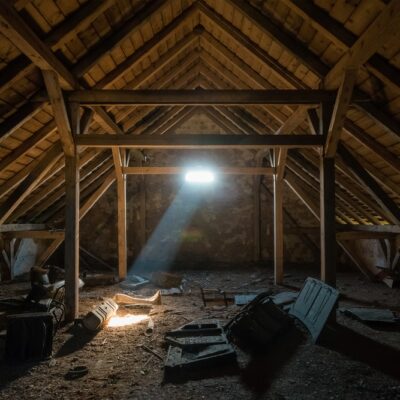House Inspections for Renters: Risk management tips for rental property inspections
Last Updated May 24, 2024


When you own an inspection business, you want the phone to ring. An incoming call often means an upcoming inspection. But what if you don’t want the client or the situation on the other end of the phone?
That’s how many inspectors feel about house inspections for renters. The scenario raises risk management questions and concerns, inspectors like Justin Withelder of Brown Bear Inspections in Pennsylvania shared on Facebook.
“[I have a] client that wants the house he rents inspected because he’s concerned about the landlord not fixing things. I’ve never run into this before,” Withelder wrote on the Home Inspectors Helping Home Inspectors group. “What’s the legality behind this? Can [I] inspect without the landlord’s permission?”
In response, some inspectors argued renters are entitled to inspections just like prospective buyers.
“If they’re legally living there, they can hire an inspector to conduct an inspection,” wrote Paul Lee of Caliber Home Inspections, LLC in Florida in the same thread.
“[I’ve] done many of these, from full inspections to stand-alone testings. Zero issues, zero added liabilities, zero added ‘potential’ for headaches. We did our job and got paid,” said Brian LeClair of Elkhorn Inspection Services, Inc. in Utah.
Other inspectors warn against rental inspections.
“We get requests like that all the time and I refer them to the local housing authority,” said Alicia Leiviska of Northerneer Building Inspections in Minnesota.
“Leave that can of worms. You don’t get paid to go to court,” wrote Kelle Boche of High Tide Home Inspection, LLC in North Carolina.
Can a renter get a home inspection? Is it wise to perform home inspections for renters? Do rental inspections have more liability than standard home inspections? If you offer inspections on rental properties, how can you manage your risk? Read on to find answers.
What is a rental inspection?
A rental property inspection is a visual, non-invasive examination of real estate occupied by tenants rather than owners. While you may conduct rental property inspections for the owners, tenants occasionally request them, too. Sometimes renters want inspections to protect themselves from false property damage accusations, explains Les Hanna of Hanna Home Services in Florida.
“They’re wanting documentation so when the tenant moves out, if the landlord comes in and says, ‘Hey, you broke this closet door,’ the tenant can say no…and look at a picture [in their inspection report],” Hanna said.
However, when a renter requests an inspection, they usually have an immediate need and want support getting that need addressed by their landlord, explains Justin Simmons of Home Scope Home Inspections in Georgia.
“I had one inspection where all of the windows were compromised. They all had some kind of a leakage or a mold-like substance around them. Some of the windows wouldn’t even open. And the rental agency was really adamant about just coming [and] painting over it,” Simmons said.
For clients like these, the rental property inspection report can provide unbiased validation of an issue. In turn, renters can use it to leverage their landlords into potentially granting repairs or remediation. For example, many tenant/landlord disputes are over mold. In such cases where a renter is only concerned about a specific issue, a home inspector may perform a stand-alone ancillary inspection service, like mold sampling, instead of a full inspection.
How do house inspections for renters differ from those for buyers?
What do rental inspectors look for? The scope of your standard residential property inspection for a buyer or seller is the same for tenants. Your standard of practice (SOP) doesn’t change. But renters may have limited access to the property, which may restrict what you can see. Spaces inaccessible to tenants (and you) may include:
- Common areas for apartments and condos.
- Systems for multiple units, like boilers.
- Attics.
- Crawlspaces.
Can a tenant request an inspection? Is it legal?
Yes, renters can request inspections. Tenant inspection rights and rental inspection laws are fairly consistent across the country and are legal in most cases.
There are only a few things that could make tenant home inspections problematic:
- While extremely rare, an inspection can violate a renter’s lease if the lease explicitly states they cannot request an inspection.
- The tenant has to pay for the inspection themselves. The landlord has no legal obligation to pay for them.
- You can only inspect areas accessible to the tenant, which doesn’t necessarily include the entire property.
- A local housing authority may have tenant inspection rights and rental inspection laws specific to the community.
Are house inspections for renters riskier than inspections for buyers or sellers?
Yes, house inspections for renters are riskier than inspections for buyers or sellers. Most renters request inspections in tenant-landlord dispute resolutions. In such cases, your inspection report becomes evidence in the renter’s argument against their landlord. If their dispute escalates and goes to arbitration or court, you may need to appear and testify. And if the landlord doesn’t like what you said in your report, or if you don’t give the renter what they wanted from the inspection, they may come after you.
Bottom line: Any inspection you perform for someone as part of an existing dispute has additional risk. Since most house inspections for renters are part of tenant-landlord dispute resolution, most tenant inspections carry additional risk.
How can I manage my risk while inspecting for renters?

Despite the additional risk, you may decide to perform house inspections for renters. If you do, here are some tips for limiting your liability.
1. Know what you’re getting into.
Not all conflicts are created equal. When deciding whether or not to inspect for a renter, it helps to look at their particular case.
Retired Maryland home inspector Rocky Banks says asking clients, including renter-clients, about their needs and experiences upon booking helps you understand their intentions.
“We were very inquisitive of [renters. We ask them:] ‘Why do you think mold? What’s happening?’” Banks said. “‘Do you have any current concerns? Are there respiratory issues going on in the home?’”
Questions to ask renters may include:
- What problems are you experiencing?
- How do you hope a rental property inspection might help?
- Have you spoken to your landlord about the issues you’re facing already? What was their response?
- What do you intend to do with the inspection findings?
- If the landlord still doesn’t want to remediate or make the repair after the inspection, what will you do?
Questions like these can help you gauge the temperature of the situation. While any problem still has the opportunity to escalate, you may want to avoid renter disputes that are already heated. For example, if the tenant has already hired an attorney, you may decide to pass on the inspection.
2. Set and follow realistic expectations for your rental property inspection.
Clients want the world. They want you to find every last problem with the property, from the paint spatter on the tile to the mold behind the walls. But you can only do so much.
With renters, don’t skip explaining the scope of your home inspection. What does it include? What’s excluded? What standards are you following? Providing this basic information, both verbally and in your pre-inspection agreement, will help you avoid confusion and disappointment. It can also stifle complaints for issues outside your SOP.
In addition to providing your scope, draw attention to the fact that you can only examine legally accessible areas. For example, suppose your renter-client thinks they have a rodent problem. They hear scratching and squeaking in the ceiling, and they found some mice droppings. The attic access hatch is in their primary bedroom closet. It makes sense to check it out, right?
Not necessarily. Just because attic access is in their unit doesn’t mean the renters are allowed up there. And if they aren’t allowed, you aren’t allowed.
“There have been locked bedrooms and I said, ‘If you can’t open it, I can’t inspect it,’” Banks said.
Stick to what the renter can easily access. And if there’s any question, refer to their renter’s agreement.
Also underscore that, while your findings of your rental home inspection may help with their dispute, you cannot control the outcome. Even with evidence placed before them, property owners still might refuse to act.
“[You think:] Somebody should fix this. But it just doesn’t work like that,” Simmons said. “No one is bound to make any changes or any improvements.”
3. If you’re performing ancillary inspections, make sure you’re endorsed.
Just because the renter asks for a mold or pest inspection doesn’t mean you’re qualified to perform one. You need the proper training and certification to perform ancillary services—even services for rental property inspections.
You also need endorsements, which provide coverage for extra inspection services. Since additional services like mold and pest inspections go beyond most inspectors’ SOPs, they also go beyond most home inspector insurance policies. Endorsements cover claims related to the extra services you offer. Read more about endorsements here.
4. Have the renter sign your pre-inspection agreement before you start.

Whether you’re performing a standard inspection, rental property inspection, or just an ancillary service, you need a signed pre-inspection agreement. Your contract reinforces the expectations you set over the phone or in person. It preserves your insurance coverage. And it prevents and defends against claims. Trust us. You need it.
But having an agreement isn’t enough. Your renter-client has to sign it before you start inspecting, or it won’t hold up in a claim or in court. For help getting it signed before the inspection, every time, read these 12 tips from your fellow inspectors.
Not sure if your agreement is providing the best defense? Leave the worrying to us by using our state-specific pre-inspection agreements. Our agreements are backed by over a decade of claims handling and data, armed with the latest case law, and equipped with proven provisions. We have addendums for standalone services, like mold sampling, too. Click here to learn more about pre-inspection agreements for home inspectors.
6. When in doubt, walk away.
If you have a bad feeling about a rental inspection (or any inspection), don’t go through with it. Perhaps the renter has already hired an attorney and intends to use your report in a lawsuit. Or the tenant is asking you to exaggerate your findings in your report. If you have doubts, don’t be afraid to decline the inspection.
“If it’s something that, two years down the line, you think you could be [legally] entangled with…it may not be worth it,” Simmons said.
There are many reasons why it might make sense to walk away from a buyer, seller, or tenant inspection. Read about seven common motives here.
For all your disputes, the answer’s InspectorPro.
Whether you’re doing house inspections for renters or buyers, we at InspectorPro are here to help. Our blog is brimming with articles on how to protect your business from potential claims. And our insurance coverage offers defense catered to your unique needs and industry. Apply now to see how we can give you better peace of mind and protection.





